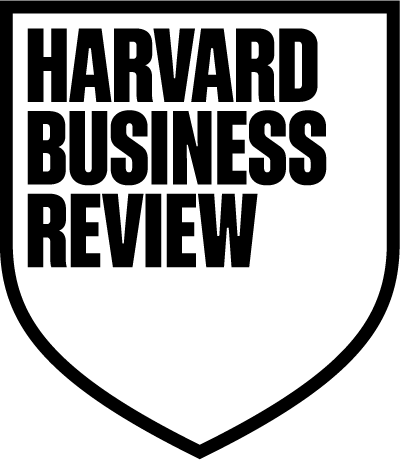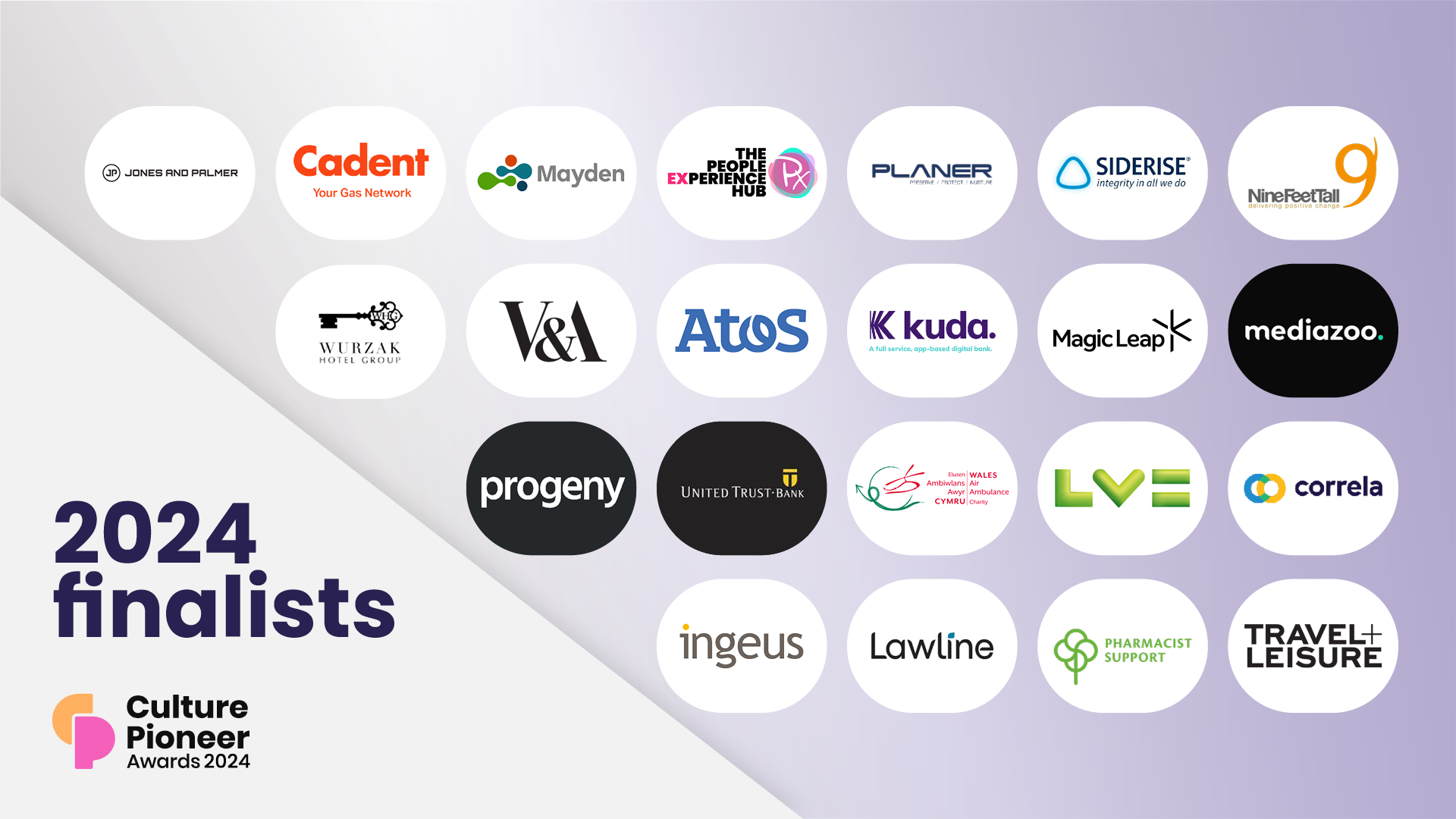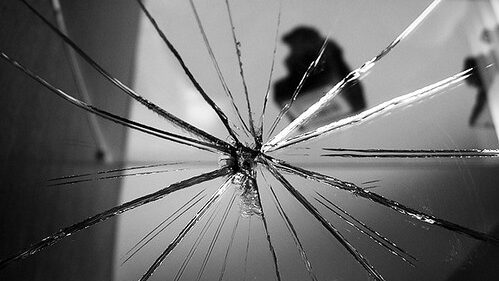Critical Thinking Is About Asking Better Questions
by John Coleman


Summary .
Are you tackling a new and difficult problem at work? Recently promoted and trying to both understand your new role and bring a fresh perspective? Or are you new to the workforce and seeking ways to meaningfully contribute alongside your more experienced colleagues? If so, critical thinking — the ability to analyze and effectively break down an issue in order to make a decision or find a solution — will be core to your success. And at the heart of critical thinking is the ability to formulate deep, different, and effective questions.
Partner Center
Brought to you by:

Critical Thinking Is About Asking Better Questions
By: John Coleman
Six practices to sharpen your inquiry.
- Length: 1235 word count
- Publication Date: Apr 22, 2022
- Discipline: General Management
- Product #: H07078-PDF-ENG
What's included:
- Same page, Educator Copy
$4.50 per student
degree granting course
$7.95 per student
non-degree granting course
Get access to this material, plus much more with a free Educator Account:
- Access to world-famous HBS cases
- Up to 60% off materials for your students
- Resources for teaching online
- Tips and reviews from other Educators
Already registered? Sign in
- Student Registration
- Non-Academic Registration
- Included Materials
Critical thinking is the ability to analyze and effectively break down an issue in order to make a decision or find a solution. At the heart of critical thinking is the ability to formulate deep, different, and effective questions. For effective questioning, start by holding your hypotheses loosely. Be willing to fundamentally reconsider your initial conclusions — and do so without defensiveness. Second, listen more than you talk through active listening. Third, leave your queries open-ended, and avoid yes-or-no questions. Fourth, consider the counterintuitive to avoid falling into groupthink. Fifth, take the time to stew in a problem, rather than making decisions unnecessarily quickly. Last, ask thoughtful, even difficult, follow-ups.
Apr 22, 2022
Discipline:
General Management
Harvard Business Review Digital Article
H07078-PDF-ENG
1235 word count
We use cookies to understand how you use our site and to improve your experience, including personalizing content. Learn More . By continuing to use our site, you accept our use of cookies and revised Privacy Policy .
Critical Thinking Is About Asking Better Questions
At the heart of critical thinking is the ability to formulate deep, different, and effective questions. Here is a process for asking better, more effective questions.
Let’s talk
Change isn’t easy, but we can help. Together we’ll create informed and inspired leaders ready to shape the future of your business.
© 2024 Harvard Business School Publishing. All rights reserved. Harvard Business Publishing is an affiliate of Harvard Business School.
- Privacy Policy
- Copyright Information
- Terms of Use
- About Harvard Business Publishing
- Higher Education
- Harvard Business Review
- Harvard Business School
We use cookies to understand how you use our site and to improve your experience. By continuing to use our site, you accept our use of cookies and revised Privacy Policy .
Cookie and Privacy Settings
We may request cookies to be set on your device. We use cookies to let us know when you visit our websites, how you interact with us, to enrich your user experience, and to customize your relationship with our website.
Click on the different category headings to find out more. You can also change some of your preferences. Note that blocking some types of cookies may impact your experience on our websites and the services we are able to offer.
These cookies are strictly necessary to provide you with services available through our website and to use some of its features.
Because these cookies are strictly necessary to deliver the website, refusing them will have impact how our site functions. You always can block or delete cookies by changing your browser settings and force blocking all cookies on this website. But this will always prompt you to accept/refuse cookies when revisiting our site.
We fully respect if you want to refuse cookies but to avoid asking you again and again kindly allow us to store a cookie for that. You are free to opt out any time or opt in for other cookies to get a better experience. If you refuse cookies we will remove all set cookies in our domain.
We provide you with a list of stored cookies on your computer in our domain so you can check what we stored. Due to security reasons we are not able to show or modify cookies from other domains. You can check these in your browser security settings.
We also use different external services like Google Webfonts, Google Maps, and external Video providers. Since these providers may collect personal data like your IP address we allow you to block them here. Please be aware that this might heavily reduce the functionality and appearance of our site. Changes will take effect once you reload the page.
Google Webfont Settings:
Google Map Settings:
Google reCaptcha Settings:
Vimeo and Youtube video embeds:
You can read about our cookies and privacy settings in detail on our Privacy Policy Page.

A Crash Course in Critical Thinking
What you need to know—and read—about one of the essential skills needed today..
Posted April 8, 2024 | Reviewed by Michelle Quirk
- In research for "A More Beautiful Question," I did a deep dive into the current crisis in critical thinking.
- Many people may think of themselves as critical thinkers, but they actually are not.
- Here is a series of questions you can ask yourself to try to ensure that you are thinking critically.
Conspiracy theories. Inability to distinguish facts from falsehoods. Widespread confusion about who and what to believe.
These are some of the hallmarks of the current crisis in critical thinking—which just might be the issue of our times. Because if people aren’t willing or able to think critically as they choose potential leaders, they’re apt to choose bad ones. And if they can’t judge whether the information they’re receiving is sound, they may follow faulty advice while ignoring recommendations that are science-based and solid (and perhaps life-saving).
Moreover, as a society, if we can’t think critically about the many serious challenges we face, it becomes more difficult to agree on what those challenges are—much less solve them.
On a personal level, critical thinking can enable you to make better everyday decisions. It can help you make sense of an increasingly complex and confusing world.
In the new expanded edition of my book A More Beautiful Question ( AMBQ ), I took a deep dive into critical thinking. Here are a few key things I learned.
First off, before you can get better at critical thinking, you should understand what it is. It’s not just about being a skeptic. When thinking critically, we are thoughtfully reasoning, evaluating, and making decisions based on evidence and logic. And—perhaps most important—while doing this, a critical thinker always strives to be open-minded and fair-minded . That’s not easy: It demands that you constantly question your assumptions and biases and that you always remain open to considering opposing views.
In today’s polarized environment, many people think of themselves as critical thinkers simply because they ask skeptical questions—often directed at, say, certain government policies or ideas espoused by those on the “other side” of the political divide. The problem is, they may not be asking these questions with an open mind or a willingness to fairly consider opposing views.
When people do this, they’re engaging in “weak-sense critical thinking”—a term popularized by the late Richard Paul, a co-founder of The Foundation for Critical Thinking . “Weak-sense critical thinking” means applying the tools and practices of critical thinking—questioning, investigating, evaluating—but with the sole purpose of confirming one’s own bias or serving an agenda.
In AMBQ , I lay out a series of questions you can ask yourself to try to ensure that you’re thinking critically. Here are some of the questions to consider:
- Why do I believe what I believe?
- Are my views based on evidence?
- Have I fairly and thoughtfully considered differing viewpoints?
- Am I truly open to changing my mind?
Of course, becoming a better critical thinker is not as simple as just asking yourself a few questions. Critical thinking is a habit of mind that must be developed and strengthened over time. In effect, you must train yourself to think in a manner that is more effortful, aware, grounded, and balanced.
For those interested in giving themselves a crash course in critical thinking—something I did myself, as I was working on my book—I thought it might be helpful to share a list of some of the books that have shaped my own thinking on this subject. As a self-interested author, I naturally would suggest that you start with the new 10th-anniversary edition of A More Beautiful Question , but beyond that, here are the top eight critical-thinking books I’d recommend.
The Demon-Haunted World: Science as a Candle in the Dark , by Carl Sagan
This book simply must top the list, because the late scientist and author Carl Sagan continues to be such a bright shining light in the critical thinking universe. Chapter 12 includes the details on Sagan’s famous “baloney detection kit,” a collection of lessons and tips on how to deal with bogus arguments and logical fallacies.

Clear Thinking: Turning Ordinary Moments Into Extraordinary Results , by Shane Parrish
The creator of the Farnham Street website and host of the “Knowledge Project” podcast explains how to contend with biases and unconscious reactions so you can make better everyday decisions. It contains insights from many of the brilliant thinkers Shane has studied.
Good Thinking: Why Flawed Logic Puts Us All at Risk and How Critical Thinking Can Save the World , by David Robert Grimes
A brilliant, comprehensive 2021 book on critical thinking that, to my mind, hasn’t received nearly enough attention . The scientist Grimes dissects bad thinking, shows why it persists, and offers the tools to defeat it.
Think Again: The Power of Knowing What You Don't Know , by Adam Grant
Intellectual humility—being willing to admit that you might be wrong—is what this book is primarily about. But Adam, the renowned Wharton psychology professor and bestselling author, takes the reader on a mind-opening journey with colorful stories and characters.
Think Like a Detective: A Kid's Guide to Critical Thinking , by David Pakman
The popular YouTuber and podcast host Pakman—normally known for talking politics —has written a terrific primer on critical thinking for children. The illustrated book presents critical thinking as a “superpower” that enables kids to unlock mysteries and dig for truth. (I also recommend Pakman’s second kids’ book called Think Like a Scientist .)
Rationality: What It Is, Why It Seems Scarce, Why It Matters , by Steven Pinker
The Harvard psychology professor Pinker tackles conspiracy theories head-on but also explores concepts involving risk/reward, probability and randomness, and correlation/causation. And if that strikes you as daunting, be assured that Pinker makes it lively and accessible.
How Minds Change: The Surprising Science of Belief, Opinion and Persuasion , by David McRaney
David is a science writer who hosts the popular podcast “You Are Not So Smart” (and his ideas are featured in A More Beautiful Question ). His well-written book looks at ways you can actually get through to people who see the world very differently than you (hint: bludgeoning them with facts definitely won’t work).
A Healthy Democracy's Best Hope: Building the Critical Thinking Habit , by M Neil Browne and Chelsea Kulhanek
Neil Browne, author of the seminal Asking the Right Questions: A Guide to Critical Thinking, has been a pioneer in presenting critical thinking as a question-based approach to making sense of the world around us. His newest book, co-authored with Chelsea Kulhanek, breaks down critical thinking into “11 explosive questions”—including the “priors question” (which challenges us to question assumptions), the “evidence question” (focusing on how to evaluate and weigh evidence), and the “humility question” (which reminds us that a critical thinker must be humble enough to consider the possibility of being wrong).

Warren Berger is a longtime journalist and author of A More Beautiful Question .
- Find a Therapist
- Find a Treatment Center
- Find a Psychiatrist
- Find a Support Group
- Find Online Therapy
- United States
- Brooklyn, NY
- Chicago, IL
- Houston, TX
- Los Angeles, CA
- New York, NY
- Portland, OR
- San Diego, CA
- San Francisco, CA
- Seattle, WA
- Washington, DC
- Asperger's
- Bipolar Disorder
- Chronic Pain
- Eating Disorders
- Passive Aggression
- Personality
- Goal Setting
- Positive Psychology
- Stopping Smoking
- Low Sexual Desire
- Relationships
- Child Development
- Self Tests NEW
- Therapy Center
- Diagnosis Dictionary
- Types of Therapy

It’s increasingly common for someone to be diagnosed with a condition such as ADHD or autism as an adult. A diagnosis often brings relief, but it can also come with as many questions as answers.
- Emotional Intelligence
- Gaslighting
- Affective Forecasting
- Neuroscience

Emma Sue Prince
Read more from Emma Sue Prince
googletag.cmd.push(function() { googletag.display(‘div-gpt-ad-1705321608055-0’); });
- February 3, 2020
Critical thinking: the art of asking questions
- By Emma Sue Prince

- Tags: Behavioural Skills , Communication
Asking great questions is a huge part of thinking critically, yet so often we either don’t ask enough questions or even the ‘right’ questions. This is because we don’t slow down long enough to either really listen (when asking questions of others) or really reflect (when asking questions of ourselves). Yet the more we can ask questions the more creativity, innovation, solutions and breakthroughs we encourage.
Questioning can spark change in your life, your business, or in the world around you. Questions like ‘what if we did this?’, ‘what if we tried that?’ can lead to new ideas, products and services as long as we stick with them and keep asking more questions.
Remember to look up at the stars, not down at your feet. Try to make sense of what you see and wonder about what makes the universe exist. Be curious. – Stephen Hawking
In our lives, in general, there’s a tendency to move along on auto-pilot when it would be so much better to regularly step back and question everything—about our career choices, about our attitudes and beliefs, about the ways we choose to live. Questioning is good for us. It can help to open up new possibilities in our lives. It’s a first step in solving problems. It makes us more successful as leaders. People who ask a lot of questions tend to be more engaged in their lives, more fulfilled, and happier.
Challenging assumptions
When it comes to thinking critically, questioning our assumptions is vital. These assumptions are automatic and immediate and we need to learn how to question them more: ‘why is this image/thought/idea coming to mind?’ ‘what does this situation remind me of that is making me feel stressed right now?’ or even commenting to ourselves: ‘oops, there I go again acting on my assumptions’ – generally in any situation just asking one more question can be the difference between understanding, strong communication and great responses over reactionary, defensive behaviour because we are acting on assumptions and limiting beliefs. What would it be like if every decision you made didn’t involve your personal feelings or over-emotional reactions? What if your perspective was always balanced and decisions completely informed?
In critical thinking, whether in business, in our personal lives or education we are taught to question everything. The question behind the question, however, is: what questions should you be asking?
- Open questions (when asking questions of others) are better: ‘how do you feel about….’, ‘what’s your take on….’ ‘where do you think this idea came from…’ ‘what makes you say that?’
- Specific questions can be helpful when you are asking yourself questions to better understand your responses or to have more accurate information about a situation or something you’ve read on social media: ‘is this an opinion?’ ‘is this even news?’ (news posted on social media may not be news at all – it may be clickbait, gossip/rumours, outrage or just poorly written and evidenced), ‘who paid for this survey and how big is the sample size?’ (when it comes to ‘statistics’), ‘what do I want to stop doing/start doing/do more of/do less of?’ when it comes to making choices about your life or direction.
There are infinite questions you can ask – the most important thing is that the question you ask should give you more insight, data, information that you did not have before. It’s also important to stick with it – sometimes the answer is not immediate, in fact most of the time the answer will evolve.
Capture thoughts, ideas, and insights either together with your team at work or for yourself in a notebook. Never take things at face value – in fact in every interaction and encounter with anybody and with any information you are presented with try to insert just one question that give you more.
Interested in this topic? Read Personal development: five ways to improve your critical thinking skills .


2024 autumn conference season: The L&D themes we can’t get enough of

Building a bulletproof LMS: Steps to create a secure learning environment for a distributed company

Learning and development’s role in menopause support

Can AI resolve employee conflict?
Most read this week.
- Deliver , Training
- 21st October 2024
- Erica Farmer

- Culture , Lead
- 10th September 2024
2024 Culture Pioneer Awards finalists announced
- Becky Norman

- Business , Develop
- 7th October 2024
Strategy: It’s that time again
- Robin Hoyle

- Coaching , Deliver
- 16th October 2024
Five dysfunctions of a team – and how coaching can help
- Matt Somers
Human-centred leadership
Leaders need to stop the self-sacrifice cycle
How to escape the relentless pace of leadership
Middle management’s biggest challenge
The role of emotional intelligence and self-compassion
Unlocking courage
We need braver leaders, so how do we get them?
- About TrainingZone
- Advertise on TrainingZone
- Terms of use
- Privacy policy
- Sub-Processors List

COMMENTS
Summary. Critical thinking is the ability to analyze and effectively break down an issue in order to make a decision or find a solution. At the heart of critical thinking is the ability to...
anything, one must ask the questions necessary to thinking through the logic of that thing, clearly and precisely. In this miniature guide, we introduce essential questions as indispensable intellectual
Critical thinking is the ability to analyze and effectively break down an issue in order to make a decision or find a solution. At the heart of critical thinking is the ability to formulate deep, different, and effective questions. For effective questioning, start by holding your hypotheses loosely.
At the heart of critical thinking is the ability to formulate deep, different, and effective questions. Here is a process for asking better, more effective questions.
You can develop critical thinking skills every day if you approach problems in a logical manner. Here are a few ways you can start your path to improvement: 1. Ask questions. Be inquisitive about everything. Maintain a neutral perspective and develop a natural curiosity, so you can ask questions that develop your understanding of the situation ...
Examples Of Using ‘5 Ws Questions’ For Critical Thinking. What’s the point? What’s the big idea? What’s the purpose? What is the process? What’s more important here? Less important? What crucial information are we missing? What did they think or believe and how did that belief change over time? What contributed to that change?
Here is a series of questions you can ask yourself to try to ensure that you are thinking critically. Conspiracy theories. Inability to distinguish facts from falsehoods.
Critical thinking is important for making judgments about sources of information and forming your own arguments. It emphasizes a rational, objective, and self-aware approach that can help you to identify credible sources and strengthen your conclusions.
Critical thinking: the art of asking questions. How and when to challenge assumptions to get better results. By Emma Sue Prince. Tags: Behavioural Skills, Communication. Asking great questions is a huge part of thinking critically, yet so often we either don’t ask enough questions or even the ‘right’ questions.
practice asking essential questions if we have no conception of them. This mini-guide is a starting place for understanding concepts that, when applied, lead to essential questions.